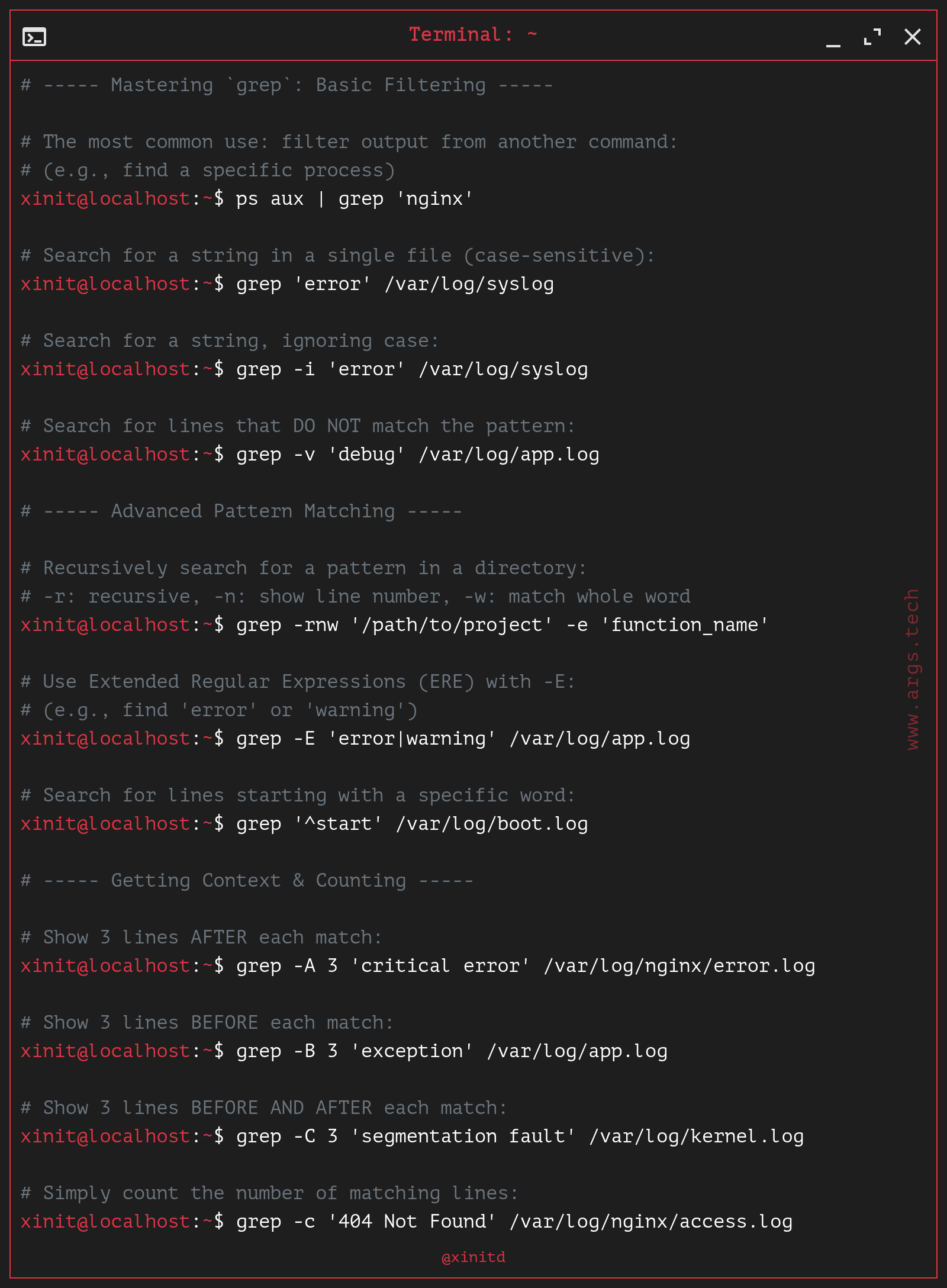How to use "grep": A practical Linux cheatsheet
# A practical grep command cheatsheet for Linux. Learn to search files, use
# regular expressions, filter output, and more with easy-to-copy examples.
# ----- Mastering `grep`: Basic Filtering -----
# The most common use: filter output from another command:
# (e.g., find a specific process)
xinit@localhost:~$ ps aux | grep 'nginx'
# Search for a string in a single file (case-sensitive):
xinit@localhost:~$ grep 'error' /var/log/syslog
# Search for a string, ignoring case:
xinit@localhost:~$ grep -i 'error' /var/log/syslog
# Search for lines that DO NOT match the pattern:
xinit@localhost:~$ grep -v 'debug' /var/log/app.log
# ----- Advanced Pattern Matching -----
# Recursively search for a pattern in a directory:
# -r: recursive, -n: show line number, -w: match whole word
xinit@localhost:~$ grep -rnw '/path/to/project' -e 'function_name'
# Use Extended Regular Expressions (ERE) with -E:
# (e.g., find 'error' or 'warning')
xinit@localhost:~$ grep -E 'error|warning' /var/log/app.log
# Search for lines starting with a specific word:
xinit@localhost:~$ grep '^start' /var/log/boot.log
# ----- Getting Context & Counting -----
# Show 3 lines AFTER each match:
xinit@localhost:~$ grep -A 3 'critical error' /var/log/nginx/error.log
# Show 3 lines BEFORE each match:
xinit@localhost:~$ grep -B 3 'exception' /var/log/app.log
# Show 3 lines BEFORE AND AFTER each match:
xinit@localhost:~$ grep -C 3 'segmentation fault' /var/log/kernel.log
# Simply count the number of matching lines:
xinit@localhost:~$ grep -c '404 Not Found' /var/log/nginx/access.log
